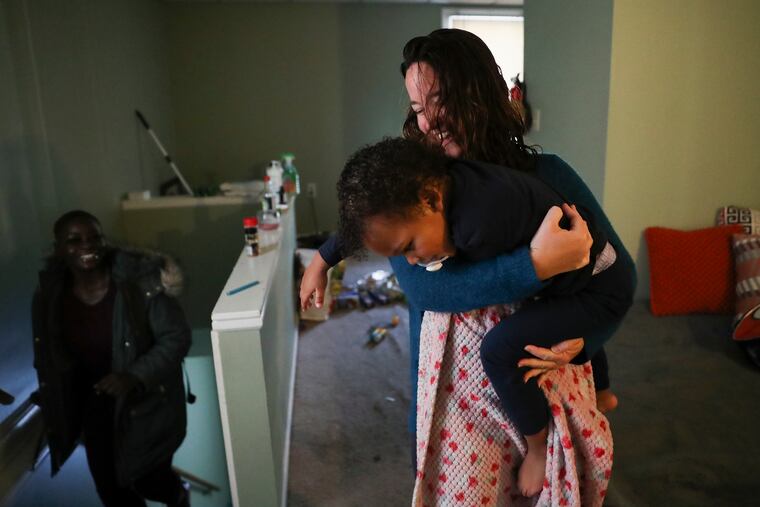Paying for child care shouldn’t be this hard | Opinion
I’ve been interviewing struggling Philadelphians for decades. “I can’t go to work Monday,” one mother told me. “I have no money to pay the day care.”

When I first met lifelong Philadelphia resident Colleen in 2004, we talked about child care. In the past, she had struggled to pay for care for her child as a part-time server in a restaurant. She felt lucky when she landed a full-time job making $7 an hour but found that it was not enough to afford the reliable child care she needed for her new work schedule. And when she turned to options for child-care subsidies, she was only offered a spot on a months-long waiting list.
The realization stung. “I can’t go to work Monday,” she told me. “I have no money to pay the day care.” Left without any options, Colleen had to quit her new job to take care of her child.
In his State of the Union address, President Joe Biden made clear that he intends to lower the high costs of having a family in America. That includes fixing the decades-long issues plaguing our nation’s child-care system, which has driven costs for families through the roof.
This is particularly crucial in Philadelphia, where the median family income lags more than $20,000 behind the median U.S. household, making child-care costs even more overwhelming.
» READ MORE: In Philly, most families pay more than $10,000 per year for infant child care. This has to change. | Opinion
President Biden’s plan to fix it — including curbing child-care costs to less than 7% of family income for most people, outlined in last year’s Build Back Better Act — would be a major step in the right direction. His State of the Union address should be a wake-up call for our members of Congress to finally come together and pass meaningful child-care reform. Our nation’s families depend on it.
When I first began interviewing people who were financially struggling throughout Philadelphia in the 2000s, I heard many stories from low-income parents like Colleen who were trying to cover the costs of necessities.
Even when the minimum wage was raised to $7.25 per hour in 2009, it was not nearly enough to offset increases in child-care costs. And the fact that the federal — and Pennsylvania — minimum wage has not been increased in nearly 13 years means that families are facing this pinch even more today.
“The fact that the federal — and Pennsylvania — minimum wage has not been increased in nearly 13 years means families are facing this pinch even more today.”
The simplest way to help parents like Colleen, and to get child care to the greatest number of kids, is to expand universal and public options and make child care more affordable for everyone.
In Pennsylvania, kindergarten is not state-mandated. Where kindergarten is available, it is not always full-day. For working parents, half-day kindergarten means they have to spend another year paying exorbitant child-care costs to cover the hours when their child isn’t in school.
The government needs to fully fund public elementary education so that every school district can offer full-day kindergarten and free pre-K. This would enable parents to go to work knowing their children are cared for and that they won’t lose most of their earnings to child care. And we must increase subsidies and federal dollars for child-care providers so that the workers providing this crucial care can finally be paid what they’re worth.
These programs would substantially reduce the cost of child care for families and support an industry that has long been losing talented and passionate workers who are often paid poverty-level wages.
Such proposals were not possible when Colleen was trying to navigate the world of low-wage work. But now there is an opportunity to make child care more affordable for countless families just like hers, including many in the Philadelphia area. Congress should support Biden’s agenda and finally pass meaningful child-care reform.
Joan Maya Mazelis is an associate professor of sociology at Rutgers University-Camden and the author of “Surviving Poverty: Creating Sustainable Ties among the Poor.” @JoanieMazelis